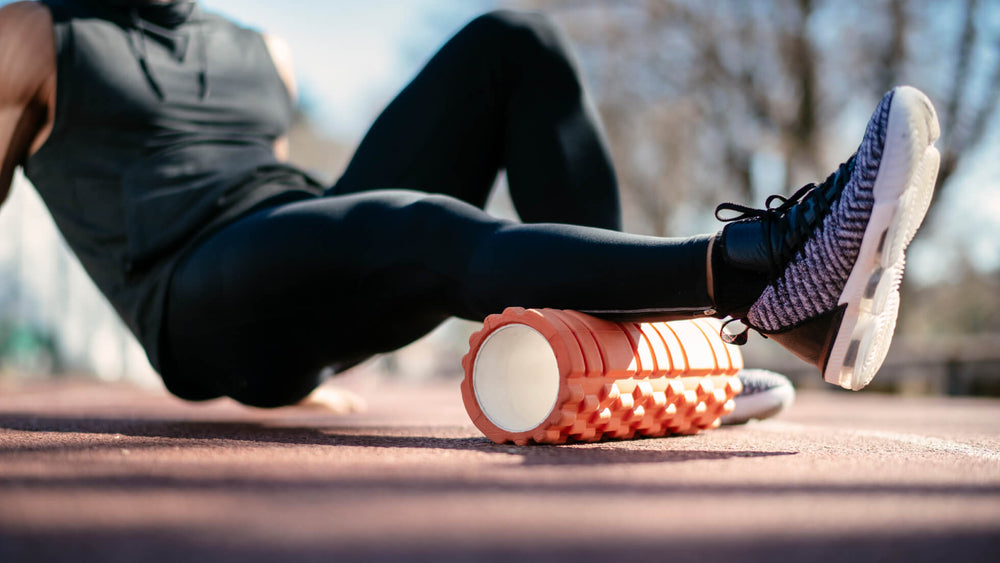6 Common Nutrient Deficiencies in Athletes

An athlete may seem like the picture of health to most people, but even the fittest athlete can be at risk for nutrient deficiencies. People who are physically active tend to have higher nutrient needs when compared with non-athletes. Some athletes even have a hard time eating enough to stay well-nourished. Nutrient deficiencies are particularly common in athletes who are also trying to cut back on calories or focusing on weight loss. Here are some of the most common deficiencies and how to correct them.
1. Calcium is important for strong bones and muscle contractions. The recommended daily intake is 1,000 mg per day, and most people don’t get nearly. But for athletes, high-intensity training — particularly when you sweat a lot — can increase calcium excretion, meaning you need even more calcium than a non-athlete.
Dairy products are a good source of calcium, but it can also be found in green leafy vegetables, fish with bones and tofu. Most nut milks or milk alternatives are also fortified with calcium. Aim to include at least 2 to 3 sources per day in your diet.
 2. Vitamin D is necessary for calcium absorption, but also plays many other roles in the body, from weight management to maintaining a healthy immune system. Vitamin D deficiency is common, since our bodies only manufacture this vitamin during exposure to the sun. So if you don’t spend much time indoors or live in a colder climate, it may be difficult to get sufficient vitamin D.
2. Vitamin D is necessary for calcium absorption, but also plays many other roles in the body, from weight management to maintaining a healthy immune system. Vitamin D deficiency is common, since our bodies only manufacture this vitamin during exposure to the sun. So if you don’t spend much time indoors or live in a colder climate, it may be difficult to get sufficient vitamin D.
To get your vitamin D up, spend 15 to 20 minutes daily exposed to direct sunlight. Foods are generally pretty low in vitamin D, so a supplement may be useful to help improve your levels.
3. Iron is the most common nutrient deficiencies, particularly among female athletes. Iron is critically important for carrying oxygen to the muscles. A deficiency leads to fatigue and poor performance. Female athletes are at risk due to inadequate intake of iron in combination with monthly blood losses.
To meet your iron needs, try to include high-iron foods at every meal. The most absorbable type of iron is found in animal foods, such as red meat, chicken and fish. Plant-based foods, such as beans and cereals, do contain iron, but it is not as readily absorbed. Vitamin C increases absorption, so be sure to eat high-iron foods with a good source, such as strawberries, citrus or tomatoes.
4. Magnesium has been called the “relaxation” mineral, helping muscles relax after a hard workout. Physical activity increases magnesium needs by 10-20%. Try to include a source of magnesium in your post-workout meal. Foods high in magnesium include nuts, avocados, bananas and tofu. You may also consider a post-workout beverage, such as TriFuel, to help replenish all electrolytes at once.
5. Zinc is an important micronutrient, needed in small quantities to support the immune system and promote wound healing. Zinc is found in nuts, seeds, oysters, spinach, and dark chocolate.
6. Potassium is an important electrolyte critical for hydration. Athletes are particularly at risk for dehydration due to electrolytes lost from sweating. Low potassium levels can lead to cramping, weakness and an abnormal heart rhythm. After a workout, consider replacing potassium via an electrolyte beverage like Trifuel, or eat high potassium foods, such as potatoes or bananas.
Meeting all your nutrient needs as an athlete is critically important to help you stay healthy and increase performance. Not to mention, athletes do have higher nutritional needs compared with non-athletes. With a little bit of planning, your diet can help keep you feeling your best.
References
Nielsen FH, Lukaski HC. Update on the relationship between magnesium and exercise.Magnes Res. 2006;19(3):180-9.
Rodriguez NR, DiMarco NM, Langley SL. Nutrition and Athletic Performance. Medscape. 2010.
Take the next step in your training regimen: Try any BRL Sports supplement risk-free! If our natural nutritional products aren’t the best you’ve ever used, simply return your purchase for a 100% refund — no questions asked!
Also in Inspiration & Perspiration

Extreme Endurance: How Elite Athletes Train Beyond the Limit
Explore how elite athletes train for extreme endurance. Learn what it takes to build physical and mental capacity for ultra-distance performance.

Marathon Training Nutrition: Complete Fueling Guide from Base Building to Race Day
A practical guide to marathon training nutrition, with fueling strategies, common mistakes to avoid, and how to adjust your intake from base to race.

Creatine vs Pre Workout: Which Should You Take? (Or Both?)
Creatine and pre workout serve different goals. Learn how they compare, when to use them, and whether stacking both is right for your routine.



